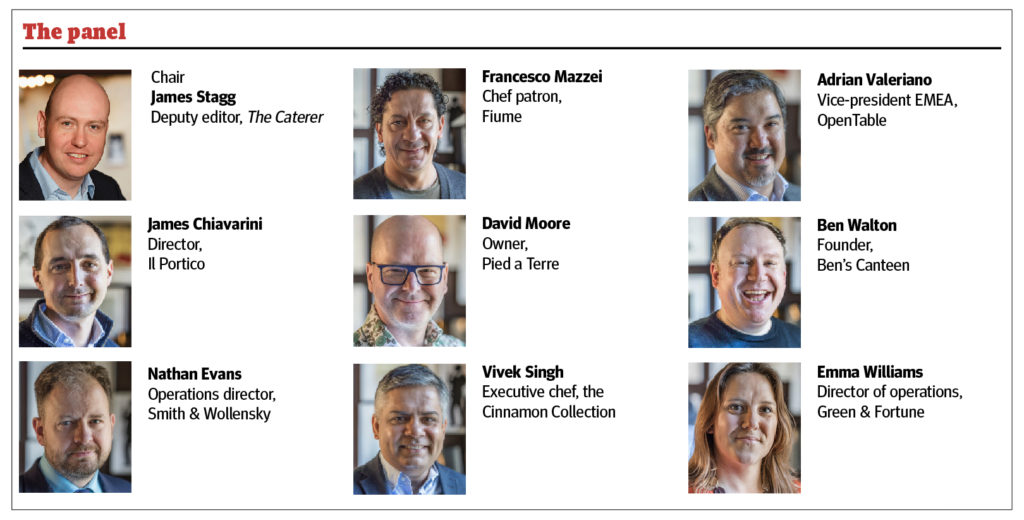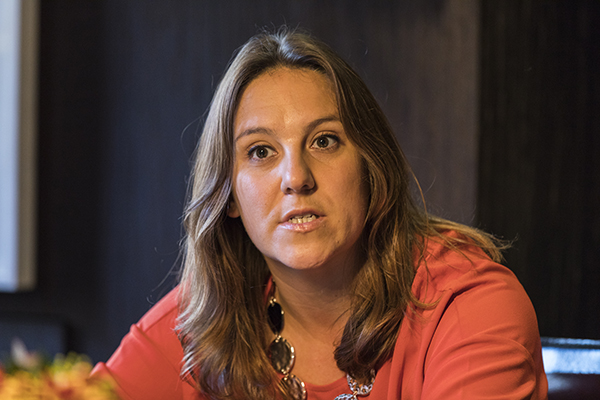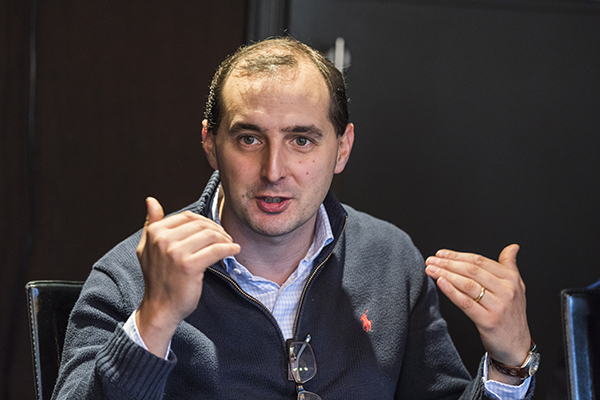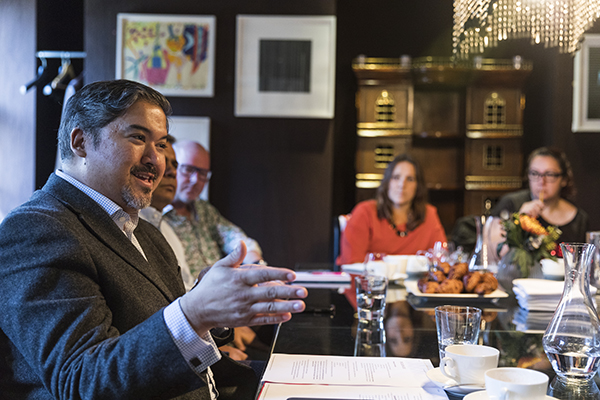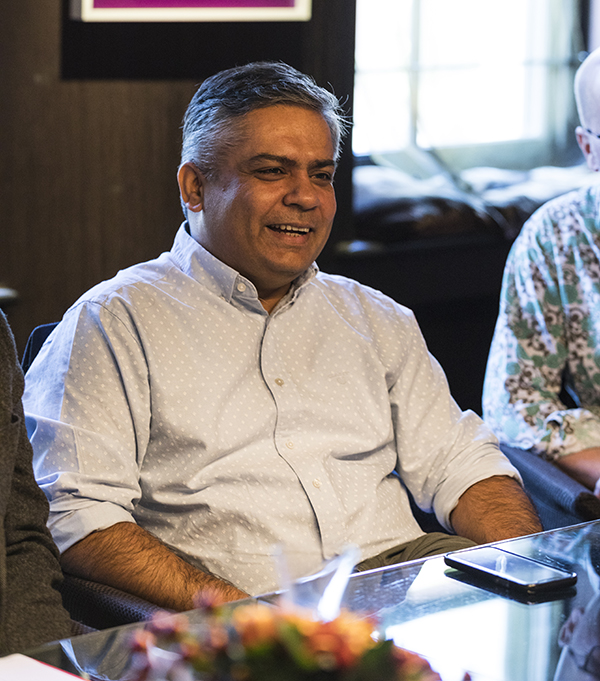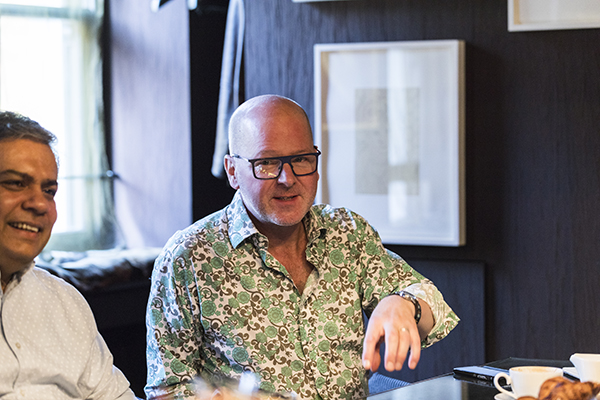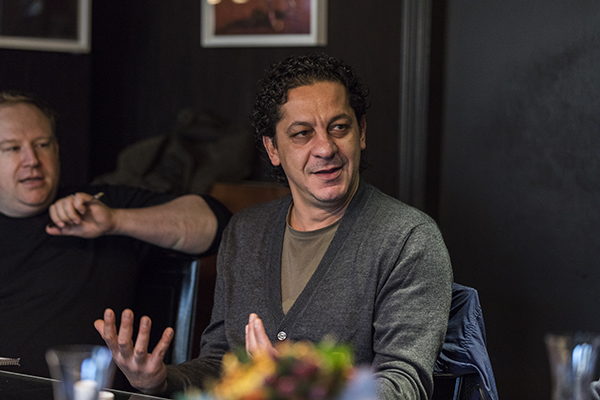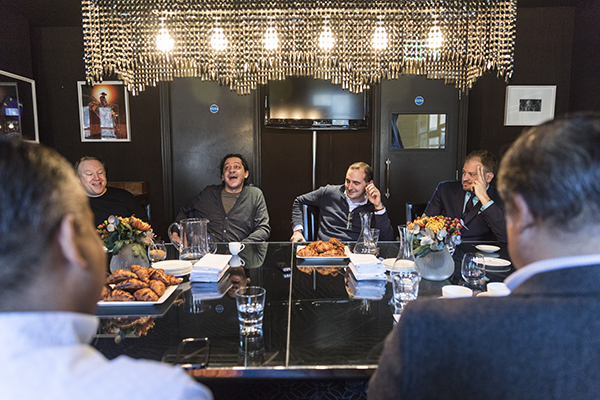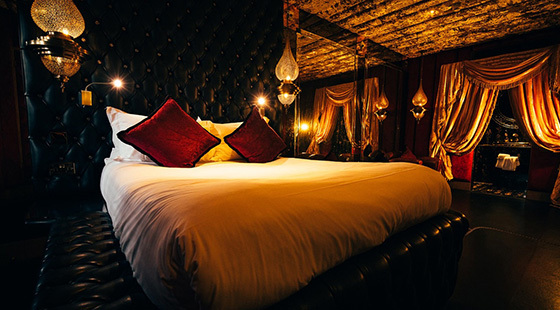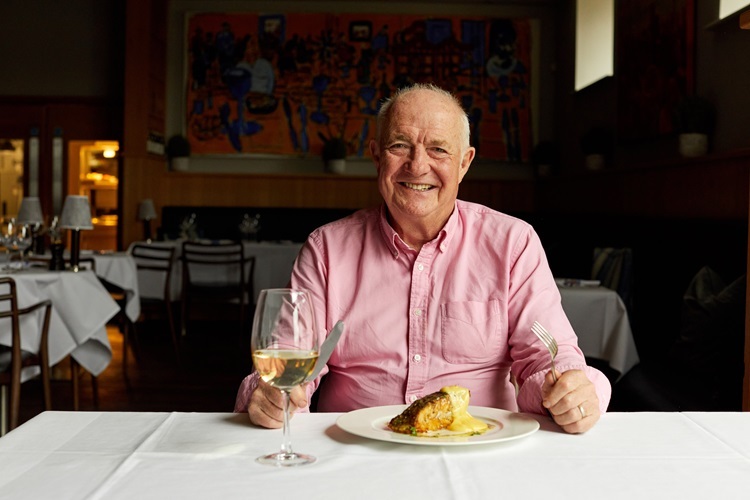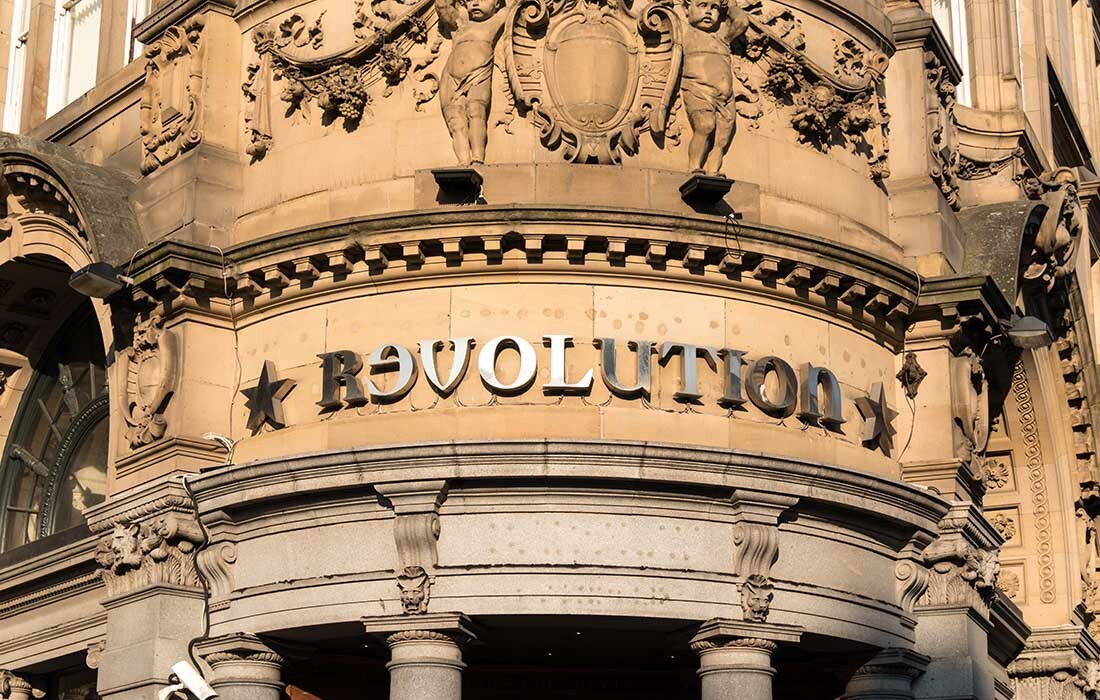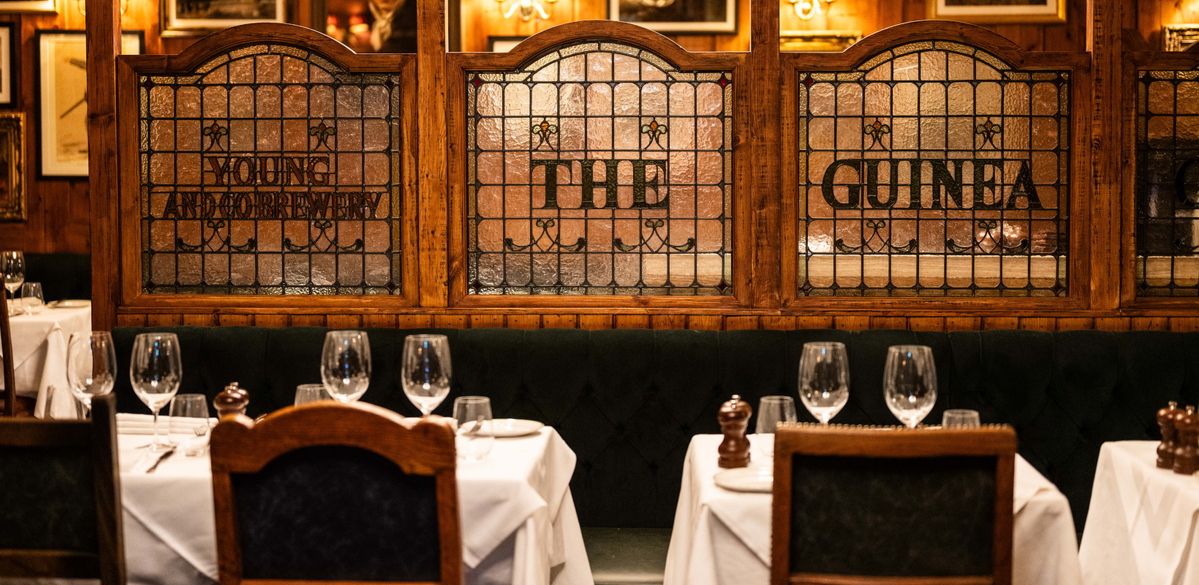Feeling festive? How businesses are readying themselves for the season
Christmas and Valentine's Day are crucial dates in the hospitality calendar, a chance to attract guests with special menus and generate record-breaking revenue. So how are businesses readying themselves? The Caterer partnered with OpenTable to discuss how operators can get the best out of seasonal holidays. Janie Manzoori-Stamford reports
Vivek Singh (VS): All the work on the menus and the decision over whether we're staying open on Christmas Day at any Cinnamon Collection site happens in May. By June the microsites are set up and ready for people to press the button on their booking when they come back from their holiday by September. That's how organised we've become.
Emma Williams (EW):
Adrian Valeriano (AV): It comes down to visibility and engagement. You do need to get the message out early on, but you also need to know how to keep that message in the front of peopleâs minds. Whatâs interesting when we look at behaviour on our network is how the length of time diners are leaving for booking for Christmas Eve is actually really small. On average in London people are booking 24 days in advance for Christmas Day.
Do you use social media to market seasonal events? Do you post pictures of Christmas dishes?
NE: Twitter and Facebook are a bit like yesterdayâs chip paper. Itâs Halloween and bonfire night before Christmas â" thereâs a much shorter lead time.
Ben Walton (BW): Youâve got to start dropping them in, but you donât want to hammer it too much. Itâs a tricky balance. Benâs Canteen is not a destination place, so if we donât market it enough and we leave it to the last minute, we donât have enough bookings. But if you push too hard, people are a bit cynical and wonder why youâre pushing Christmas in a heatwave.
James Chiavarini (JC): It depends on your clientele, too. Being in Kensington, Il Portico has a pretty conservative database of customers. If you start telling them about Christmas in October, youâre going to put them off. If youâre a neighbourhood or family restaurant there has to be that element of trust â" they donât want to look at it as a commercial exchange.
Dining out on Christmas Day saw a 43% increase in 2016, according to OpenTable. How do you decide whether to open?
VS: We had really long conversations 12 or 13 years ago about whether we should open for Christmas lunch at Cinnamon Club. Now thereâs no question; it is our biggest lunch of the year. We serve about 400 people, which we never do for any other lunch. If you donât open for that kind of revenue, where do you bring that revenue in to offset it? It took about four years to get to that level. But if you do experiment with opening on special occasions like this, take a two- or three-year view on it. There is no point trying once and then giving up.
Francesco Mazzei (FM): There are a lot of issues around transport in London. Sartoria [in Mayfair] is closed, but Radici [in Islington] is open because weâre fully booked all the time. People can walk there and have one more glass of wine.
What are customers expecting from their dining out experience at Christmas?
AV: They are becoming much more adventurous with their food choices. Thereâs a good majority who still want that traditional British festive menu, but the fastest-growing alternatives are Italian, Indian, and French.
FM: People expect a special menu. We try to make sure itâs not expensive, because they will spend to celebrate anyway. A £45 menu will be seen as good value, but by the end of the meal theyâll have spent £100 each because theyâll order the good wine and brandy.
VS: Put a special menu on, even if youâre still going to serve à la carte for walk-ins. If you donât, anybody whoâs planning in advance and looking at your website will think youâre doing nothing and just go away. So even if itâs just a holding menu, put something up there.
EW: A lot of people are spending their own money because corporate budgets have gone from Christmas parties. Theyâre trying to find something one person can organise. Itâs about making it as easy as possible, by providing a link for everyone to pay separately, for example. Itâs also not just about the restaurant side of things. We have live music and drinks packages for the key party nights, because while we want to turn the tables in the restaurant, we donât want to lose guests out of the bar.
Is Christmas the most important time of the year?
NE: Absolutely, and for us, being an American restaurant in London, Thanksgiving is also huge. Itâs the last Thursday in November and outside of the two big Fridays in December, itâs our biggest day of the year. JP Morgan has taken the whole of the ground floor for three years on the trot.
JC: Christmas has the potential to be either feast or famine, which is why it is so stressful. January is around the corner, in February youâve got half-term, and if the year starts off with bad, weather, you really want to hit the ground running in December. Youâve really only got three weeks to do what you would do in a four-week period because once schools break up, thatâs it.
FM: It depends where your restaurant is. In the West End it stops completely; everyone goes away and the crowd is mainly tourists. But our experience at Fiume in Battersea last year was that between 25 and 31 of December, people were coming in and we made good margins. Itâs the same with half term. Iâm not saying we struggle in Sartoria, but we donât do as well because the core business for breakfast and lunch disappears by about 60%.
With increased footfall during Christmas, what incentives do you offer?
EW: Everyone who books a Christmas party with us gets a voucher for a bottle of Champagne in January. Of the number of vouchers we give out, about 25% are claimed, but itâs still a nice incentive to bring people back.
David Moore (DM): If people arenât coming to me with the correct sort of budget for December, Iâll say that if they want to push their party to January, we can put together a price with a 40% discount. We get good uptake on that.
NE: Thereâs been a bit of a drift. When people miss the boat or canât get the dates they want, theyâll have their party in January. In December, we give every private dining room booking a £25 gift card that can be used in January to March.
When the General Data Protection Regulation rules came in, we went from around 68,000 people on our database to 12,500. One of the great things about these gift cards is they have to be registered online, so weâre hoping that this Christmas weâll be able to build our database back up to 30,000 to 40,000 people.
BW: We went from around 9,000 down to about 1,000, but those people werenât engaged because our opening stats arenât massively different, so Iâm kind of relaxed about it.
JC: If you have 1,000 people who are committed spenders, thatâs fine. Theyâll come regularly, which is probably better than having 10,000 people who will instantly delete your email.
There were a lot of complaints this year about no-shows on Valentineâs Day, with customers making multiple bookings and deciding where to go later. Is it essential to take deposits?
DM: If you ask for a £25 per head deposit â" not the full menu price â" you get people to focus. Those who complain about giving you their card details are the ones who arenât going to show up. We give our bank details out for deposits so guests can drop the money into our account. There are no fees for that.
For Valentineâs Day we do a seven- or eight-course tasting menu with a glass of bubbles for £129 a head. We stagger arrivals from 6pm and we also sell our private dining room table to four couples who donât know each other. They sit at each corner with flowers in between and get looked after and served separately â" itâs not banquet-style. We sell it out every year. We have people coming back for it.
FM: For Christmas Day bookings, we definitely get credit card details for a 25% deposit and we ask if they want to order from the set menu or the à la carte. That way we know exactly how many set lunches youâre going to sell and we can control the margin. All our prepayment Valentineâs Day spaces at £120 a head are fully booked every year, so an early bird menu works very well for us. We offer a three-course menu for £45 between 5pm and 6.30pm.
VS: The token amount [deposit] depends on the occasion. What we ask for at Christmas and New Yearâs Eve is not what you would expect people to pay normally. Also the set menu price point changes in different parts of the city. Soho and Covent Garden has a very high proportion of walk-in trade thatâs not prepared to pay a set menu price of £55 or £119. They want à la carte, which means £35 or £45 spend per head. Itâs tricky explaining to those that have pre-booked why they are restricted to a more expensive set menu.
AV: There are four things we offer. First and foremost is the nature of our network, which is unique in that you canât make two reservations for the same time. We also enable credit cards for those restaurants that want to do that, and we operate a âfour strikes and youâre outâ policy, so if you do no-show four times across 12 months, we bar you from using the site.
The biggest thing weâve done is seen the need for more communication between restaurants and guests, so on GuestCentre we offer the ability to send text and email confirmations. They go out to guests to both confirm and remind them of their reservation, and then allow for a two-way communication between restaurants and diners. When changes are made, it updates automatically, which also saves restaurantsâ time. We understand that this has been a serious problem going back to about 2008 and a lot of these things have been in place since then.
At Christmas, staff are run off their feet for three weeks solid. How do you keep them happy, engaged and still providing great service?
NE: Youâve got to be careful about managing their breaks and get them ready for it by offering the right advice. Theyâre young and in London. Youâve got to try and keep them from burning the candle at both ends because you donât want someone ringing in sick or coming in with a hangover. Itâs such an important part of the year, but itâs over before you know it.
EW: And they know theyâve got a good party to look forward to in January.
From our sponsor
OpenTable is the worldâs leading provider of online restaurant reservations, seating more than 26 million diners per month via online bookings across more than 47,000 restaurants.
For restaurants, OpenTable hospitality solutions enable them to manage their reservation book, streamline their operations, enhance their service levels and deliver personalised hospitality. Since its inception in 1998, OpenTable has seated more than 1.7 billion diners around the world.



